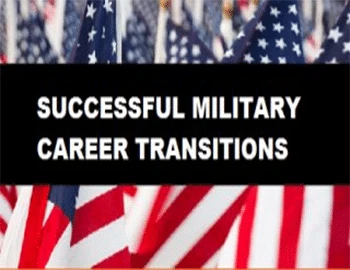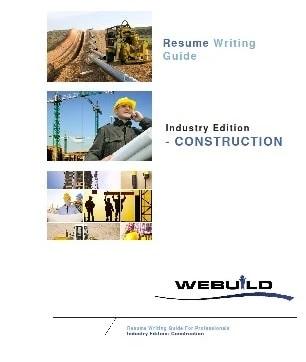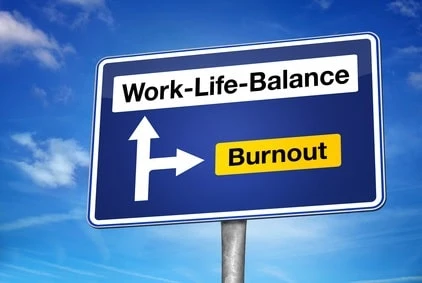Building Your Career in the Construction Industry

Building Your Career in the Construction Industry
A shortfall of skilled workers in the construction and engineering industry has created high growth in opportunities and salaries for candidates ready to enter or move up in their field.
Filling the need in construction and engineering jobs
In its report 2020 Vision: Biggest Construction Stories of the Last Decade, Engineering News-Record noted that the shortfall of skilled workers has grown since 2010. Experienced construction workers have aged out or moved into other employment, and newcomers to the field have not kept pace to replace them.
In response, industry employers are ramping up efforts to recruit new talent and offer training to existing workers to move up to higher positions. This provides a unique opportunity for workers interested in construction and engineering jobs to fill the gap by landing new jobs and taking advantage of ongoing training to gain promotions.
According to the Engineering News-Record report, industry employers are pushing to recruit non-traditional workers to fill the ranks in craft labor, professional and management positions. They seek to improve diversity and bring more candidates into the field.
Training for construction and engineering jobs
Entry level requirements will range from a high school diploma, to basic training and apprenticeships. Construction workers need strong problem solving skills and solid knowledge of working with materials and equipment. But a lot of employers offer on-the-job training and apprenticeships to allow entry level workers to gain the skills they need to be successful. And once in, construction and engineering professionals who pursue continuing training will be poised to take advantage of the fast-paced, high growth predicted in this field.
Engineering certifications require Continued Education Credits (CEUs) or Professional Development Hours (PDHs) to maintain certification, so continued learning should be an ongoing effort for anyone in the field. This benefits companies, too, since providing continuing education for its workforce leads to long-term retention and success.
How to be ready for your next job
For those interested in moving up or moving in to the construction and engineering field, a good way to begin is to scan job postings. Look for positions or companies that interest you and check the qualifications listed. This can guide you to craft a resume best suited to landing that dream job, and help you identify training you need to get there if your qualifications fall short.
As you create a resume, be sure to pull keywords from the job listings and use them as you describe your job experience, qualifications and education. This makes it clear that your resume matches the job you seek. Some employers have automated ways to scan resumes for keywords, and you’ll boost the likelihood of being flagged for followup if you include them.
Even for professionals who are happily employed, keeping an eye on current openings and related qualifications is a smart move. It ensures you know the level of training needed to stay current in your field, and you never know when an irresistible opportunity might present itself.
If you’d like to make a move in the construction or engineering field, WeBuild Staffing can help. WeBuild specializes in staffing environmental, engineering and construction organizations worldwide. Let us help build your career–please contact us.
Michael DeSafey is a leading executive recruiter for professionals in the construction, engineering and environmental industries. He is currently the President of Webuild Staffing www.webuildstaffing.com . To learn more about Michael or to follow his blog please visit www.michaeldesafey.com
How to Communicate Effectively During A Telephone Interview

How to Communicate Effectively During A Telephone Interview
Many companies start the job interview process with a telephone interview to get to know a candidate before the in-person interview. This allows the interviewer to select the best potential employee for the next step in the interview process and save a lot of time. Some people don’t represent themselves best over the phone, so here are some tips to get you one step closer to being hired!
Know the industry
When you have a phone interview, research the company that might employ you and their industry. Every industry from construction, engineering to environmental has its own specific jargon and focus. Learn some of the phrases that will apply to your new position so that you can work them in during the conversation.
Listen!
Many people on phone interviews think that they have to do all of the talking. It’s important to let the other person on the line talk. Even more important, you should take the time to listen to what the person has to say. The interviewer may even be testing your listening skills as part of the process. Consider repeating things back to the interviewer and always wait to speak until they have completely finished what they are saying.
“um..?.”
Be conscious of what you say. If you do find yourself needing a moment to think, avoid using the word “um”. Consider a moment of silence instead. Try to eliminate any other unprofessional words in your language, too, such as “like”.
Practice makes perfect
Before your interview, be sure to practice your answers to probable questions. Common interview questions include:
- Why do you want to work for our company?
- What would you consider your greatest strengths and weaknesses?
- Where do you see yourself in five years?
- Name a time at your last position where you had to work as a team.
Knowing popular questions can help you prepare, but you also want to be ready for anything that comes your way. You should also practice maintaining your composure by asking a friend or relative to ask obscure questions to see how you handle the pressure.
Avoid distractions during the interview
Interviews are difficult enough as it is. You don’t need distractions. When it is time for your job interview, find a comfortable and quiet place that gives you good reception. Make sure any children or pets are being watched by someone else. You also want to make sure that you have a clear head, so drink your morning cup of coffee first. Finally, close the windows to avoid any noise from outside grabbing your attention. You want the interviewer to focus on you- not the chaos around you.
Getting the first interview is half of the battle. There must have been something that they liked about you based on your resume or application, so be confident! Whether it’s a construction job, an environmental job, or an engineering job, use these tools to get from the phone interview to the in-person interview.
Michael DeSafey is a leading executive recruiter for professionals in the construction, engineering and environmental industries. He is currently the President of Webuild Staffing www.webuildstaffing.com . To learn more about Michael or to follow his blog please visit www.michaeldesafey.com
Steps To Consider When You Decide To Start Your Own Construction Company

Steps To Consider When You Decide To Start Your Own Construction Company
The construction industry is very competitive. More and more professionals in the construction industry are moving up the corporate ladder. They are doing the time and building up the skills and construction management know-how. They have every bit of expertise as their bosses and many are contemplating starting their own firms.
With the market now growing at a normalized rate, now is the time to take the leap at start a new business. If organized right, your construction company can get to the next level, employ many people, add to the economy and bring home a very nice profit. So there are a few important things to consider when starting your own construction firm.
First, make sure you have the client base in place. That means networking with investors, lawyers, bankers and accountants that can point you in the right direction. Most of all, you need to have number of existing relationships with large and medium sized developers and governmental agencies that can hire you and your team.
Secondly, make sure that you have the capital in place to finance your team, tools and equipment. You will also have administrative costs to run an office including rent, staff and the day to day issues. The funds can come from a loan, an investment or your personal funds. The SBA may even provide a loan.
Third, make sure to get all of your licenses and bonds so that clients will take you seriously. You also need to pay for insurance which will come when you have enough financing. Working on risky projects requires a big expense for insurance costs.
Lastly, you will need a way to staff up your firm. You need to work with third party organizations that have the resources and network to quickly grow your team with high quality individuals.
WeBuild Staffing is the leader in helping construction and engineering firms to build up their teams quickly. In a pinch, the company can produce many high quality workers and team members to help establish your growing business.
Michael DeSafey is a leading executive recruiter for professionals in the construction, engineering and environmental industries. He is currently the President of Webuild Staffing www.webuildstaffing.com . To learn more about Michael or to follow his blog please visit www.michaeldesafey.com
Transitioning From The Military to Civilian Service? Make The Transition Successfully..

Military Transitions
Transitioning From The Military to Civilian Service? Make The Transition Successfully..
As a military veteran making the transition to civilian life you are facing a great life changing transition. You have successfully built a career within the military structure for the last number of years, gained valuable skills, experience and expertise around the world.
Now you need to translate this all into civilian jargon that the average employer will understand and recognize your value as a potential employee.
To accomplish this and set you on the right path the government offers many resources to transitioning veterans, most notability the Transition Assistant Program (TAP) which within
the first 180 of transitioning you can take advantage of a 3 day workshop that allows you to explore career roles, job search strategies, resume and cover letter preparation, etc.. These workshops are vital to a transitioning veteran as it will allow you to set the framework for your new career path. Learn what skills you have that are transferrable and how to quantify those experiences for new employment.
These government programs though only give you so much; it is up to you now to develop a strong resume, career path and achieve employment in the profession your desire.
Many employers are very interested in hiring military veterans. You have the work ethic, skills and expertise that can be transferrable to almost any industry. As a professional recruiter that has worked with numerous transitioning veterans; here are a few tips that can help set the right course;
(1) Work with a good military to civilian professional resume writer. One who understands what you did in the military and how to express and quantify your experiences into a resume that achieves your career objectives.
(2) Adjust your way of speaking for the civilian environment. It is no longer necessary to address individuals are “Sir” “Ma’am”, speak in plain language. Use civilian time references rather than military time.
(3) When discussing projects or experiences talk about the roles you played rather than the titles of the project or operations. Avoid whenever possible all military speak/jargon.
(4) Search for recruiters and job agencies that focus their efforts on Transitioning Military personnel. These recruiters have unique contacts and understand what it takes for a veteran to transition away from military service.
(5) Emphasize your skills, experience and accomplishments. Network with as many people as you can.
Additionally, talking with as many veterans as you can, learn about their experiences and how they made the transition; learning about what they are doing now may open up opportunities that could lead you to a potential job opportunity.
There are also many employers that have programs in place to hire transitioning military; Home Depot, Wal-mart, and General Electric are a few of many that actively search out military veterans. You can also search online job boards like Military.com or Monster.com for opportunities specifically focused on transitioning military.
Michael DeSafey is a leading executive recruiter for professionals in the construction, engineering and environmental industries. He is currently the President of Webuild Staffing (www.webuildstaffing.com ). To learn more about Michael or Follow his Blog please visit www.michaeldesafey.com
Nerves Be Gone: How to Succeed In A Panel Interview Setting

Nerves Be Gone: How to Succeed In A Panel Interview Setting
Nerves Be Gone: How to Succeed In A Panel Interview Setting
Preparing for an interview can be a nerve-racking experience for even the most seasoned professionals. Imagine, however, getting a call from a prospective employer requesting that you interview with several different managers– in a panel style setting.
The visions of sitting across from a handful of high-powered executives shooting rapid fire questions at you start to dance through your mind. You might begin to wonder how to succeed in a panel interview setting and avoid succumbing to the pressure. Just like in a traditional interview setting, preparation is key. Below we will discuss some tips for a successful panel interview:
Research the company. Know the company you’re meeting with inside and out. Research their services and their project portfolio. Grab a company brochure and visit their website. Familiarize yourself with industry lingo.Dress for success. Even if you’re applying for a role that will require you to visit rough or dirty places, a good rule of thumb is to dress as you would if you were visiting an important client.
Research the panelists. Know who you’re going to be meeting with and what their roles are in the company. That way, you can prepare yourself for what types of questions might be asked. Check out their bios on the company website. Look them up on LinkedIn. Avoid putting yourself in the position of being interviewed by a panel of people that you know absolutely nothing about.
Engage each panelist. Before the interview begins, introduce yourself to each person on the panel. Collect business cards to help you remember their names. If cards aren’t available, jot their names down on your notepad in the order that they’re seated. During the interview, address each panelist by name. Make eye contact with everyone– even when you’re answering another panelists’ question.
Showcase your adaptability. Discuss achievements that are relevant to the position at hand. Give examples of your own work, but relate it to what they build.
Connect questions. Referencing another panelists’ question when answering a new question shows that you’re an active listener who can make connections. It also allows you to reuse strong points from a previous answer and serves to draw the other panelists into the conversation.
Ask your own questions. Asking the panelists questions of your own shows that you’re interested and engaged in the process. Consider questions like, “What do you think makes someone a successful project manager at this company?”
Follow up with everyone. Sure, it’s a little bit of extra work, but it’s worth the effort. Reach out to each panelist to thank them specifically for meeting with you. Make sure to personalize each note.
Finally, remember that panel interviews aren’t an attempt at intimidation. In fact, most companies simply use them as a time-saving tactic. Rather than viewing them as a distressing experience, consider panel interviews an opportunity to showcase your unique strengths to several influential managers at one time.
Michael DeSafey is a leading executive recruiter for professionals in the construction, engineering and environmental industries. He is currently the President of Webuild Staffing www.webuildstaffing.com To learn more about Michael or to follow his blog please visit www.michaeldesafey.com
5 Simple Things You Can Do To Beat Workplace Burnout

Workplace Burn#5: Learn How to Walk Away
5 Simple Things You Can Do To Beat Workplace Burnout
Job burnout is a terrible place to be emotionally. Caused by unending pressure and stress burnout makes you feel tired, you dread showing up at work and while you’re there everything feels like a weight tied around your neck. You can’t relax, and to make things worse it can feel like all you’re doing is wasting time and energy.
For those who’ve been noticing work feels like an ever-growing ordeal it’s possible that you’re starting to reach burnout. For those in the construction, environmental, or engineering profession this can be particularly risky not just for you, but for others who depend on you to be on your game.
Fortunately there are a number of things you can do to beat burnout and be successful in your job.
#5: Learn How to Walk Away
The person who can’t leave work at work is a trope in every film and book out there. While dedication to your job is important, it shouldn’t become your life. Hang up the day’s work with your hard hat, or lock it in the drawer with the blue pencil. Stressing about the job when you’re not on site isn’t going to make it get done any faster, and recharging your batteries for the evening without thinking about the job is just the thing to help you come back with a clear head and the focused drive you need.
#4: Do Something You Love
This advice shouldn’t be confused with the old saying of “get a career that fulfills you.” If you can do then that’s great, but if you’re dealing with job stress then you need to take some time just for you and do something that makes you feel good. Go on a fishing trip, see a play, go for a hike, or whatever activity it is that lets you unwind. It might be as simple as taking an hour to paint in your garage or working on your hobby car, but the time you spend on something you love can help you feel a lot better. After a day of putting up frames, poring over drawings, or trying to analyze a problem with local officials it helps to do something you want to do.
#3: Communicate With The People You Work With
One of the major risks for burnout is lack of certainty about where one stands. Is the project going as anticipated? Is the boss mad at you? Instead of stewing on these questions it’s a good idea to have a regular meeting’s to make sure everyone’s on the same page. It’s amazing the peace of mind a simple, “You’re doing a great job, keep it up,” can do to help reduce the risk of burnout when it comes from a superior.
#2: Focus On The Things You Like
Burnout can make every aspect of your job seem awful, which is why it’s important to remind yourself of the things you like. Do you enjoy plotting out the design of a new building before working out the details of stresses and physics? Do you like the satisfaction of feeling knowing that your work is going to be part of structure that will endure? Do you feel good about your job when you realize you’re protecting wildlife? Focus on the positive aspects of your career, and you’ll be better able to deal with the negatives.
#1: Eliminate Sources of Stress (When You Can)
Job burnout is caused by stress that goes on and on until the stress outweighs any other aspect of the job. So the best thing you can do to beat your burnout is to identify your sources of stress and eliminate them whenever possible. Is your schedule at a bad time for you? Do you have a co-worker you just can’t deal with? Do you need some time off to handle your personal life? While you can’t always make a source of stress go away, sometimes it is within your power to request changes. Ask to work a different shift, try and explain to your co-worker what he or she is doing that’s adding to your stress, or see if you can leave the job a little early for the weekend to handle your personal affairs.
Following these few tips will help you work through the daily stresses of your job and make you a much happier and productive employee.
Michael DeSafey is a leading executive recruiter for professionals in the construction, engineering and environmental industries. He is currently the President of Webuild Staffing (www.webuildstaffing.com ). To learn more about Michael or to follow his Blog please visit www.michaeldesafey.com
Advice For College Students – Set Up A Plan For Your Career…

College Graduates Ready For Career Search
Advice For College Students – Set Up A Plan For Your Career…
As a recent construction, engineering or environmental sciences graduate looking for a career opportunity upon graduation you may find the employment landscape a very challenging environment.
Employers today are receiving volumes of applications both online and in person for every open position they have within their organization. These are from experienced job seekers, as well as entry level graduates with little experience leaving the competition for jobs quite competitive especially in the construction, engineering and environmental industry. Some of the countries hardest hit industries in this last economic down turn.
As a college student approaching graduation a little planning for the future will go a long way in making sure your job prospects are plentiful upon graduation.
Plan For Your Career:
You have selected your profession and are working towards your degree, but a degree in today’s marketplace is not always enough now. Employers today want a well-rounded employee with experience in the industry, excellent written and verbal communication skills and the drive to work hard and excel.
It is vital to network with your professors, join professional trade organizations, attend seminars, and to volunteer with companies to gain experience and make connections in your chosen industry.
Obtain Internships:
One of the greatest ways to accomplish your goals while in school is through an internship. Don’t wait until the last year of college to do this, but rather begin interning by your junior year, if not earlier. This will allow you to gain the experience you need, make professional contacts, and discover what professional specialties you enjoy working in.
The internship, even if you are not being paid, is the best way to obtain full-time employment upon graduation. Employers retain interns that enjoy learning, are positive, upbeat and work hard. 90% of the time employers will employ the intern on a full-time basis upon graduation; granted they have demonstrated their value during the internship.
If nothing less, you will be exposed to many construction, engineering and environmental projects, professionals, and skills that could not be obtained in a classroom setting. Internships allow you to gain the valuable experience employers are seeking in recent graduates and you will always want to make sure to ask for recommendations from your supervisors upon completion of an internship.
Be Prepared For Your Job Search:
Conducting a job search is a challenging endeavor, especially for a recent graduate who is venturing out to the workforce for the first time.
(1) You must have a professionally written resume outlining your skills, qualifications and experience, as well as recommendation letters from past professors and/or employers.
(2) You must be polished – clean up your act, review your social media accounts and remove unflattering posts, tweets, etc. You should set up a professional LinkedIn profile and make sure you have professional attire (ie, suit, dress, etc.) not just for your interview but for the first few weeks of employment. Additionally make sure you are professionally groomed (ie.hair cut, nails, etc.).
(3) Practice interviewing. Review your resume, practice answering the most common interview questions employers ask, role-play with friends, professors and/or classmates to get comfortable with talking about yourself and answering questions that you may not be accustomed to answering. Make sure to obtain their feedback about your answers to polish you responses.
Additionally, you may want to attend interviewing seminars at your college’s career services department or buy a book or two on how to interview to get a general idea of what to expect in an interview setting.
(4) Research the companies that you may have an interview with before going into the interview. Learn what the company does, their projects, products, industry focus, who is working there, the background of the person you are interviewing with, and anything else that may pertain to the interview or company. It will greatly enhance the interviewer’s perception of you during the interview if you understand the company and ask relevant questions pertaining to the job.
A little planning for your construction, engineering or environmental career will go a long way towards successful employment after graduation.
Michael DeSafey is a leading executive recruiter for professionals in the construction, engineering and environmental industries. He is currently the President of Webuild Staffing (www.webuildstaffing.com). To learn more about Michael or to follow his Blog please visit www.michaeldesafey.com
Reasons Why Your Resume Maybe Getting Ignored….

How To Get Your Resume Noticed And Be Successful In Your Job Search.
Reasons Why Your Resume Maybe Getting Ignored….
Have you been sending resumes out for a while now and not getting any responses? Well it may be your resume, but it may also be the nature of the industry and how employers are screening and searching for candidates these days.
As technology has grown employers now have a wealth of information at their fingertips, so the resume has become one of many tools employers use to screen and source candidates.
As a candidate you need to make sure you have all your bases covered to assure an employer will give you a call back. Here are a few tips to make sure your resume is read and an employer is prompted to call you back.
- Does your resume look professional? Make sure you have a professionally formatted resume. Resumes are images of you and your career. So making sure your resume is professionally worded and formatted is of prime importance.
- Make sure you name, address, phone number and email address is on your resume!! So many times candidates send out resumes without contact information or limited contact information on their resume. This is a sure turnoff for an employer to skip over your resume. They want to know if you are local, how to get ahold of you and talk with you. So make sure this information is at the top of each page of your resume.
- Use a professional email address. As a candidate you always want to put you best foot forward. Using email address that is not professional looking is a sure turn-off for an employer. The best email address format for your career should be your initials or first initial, last name formats, not vanity or lifestyle names.
- Make sure you have a LinkedIn Profile and it is up to date. In the last 5 years or so LinkedIn has become the recruiter’s site of choice to learn about candidates and your professional career. Many employers will check LinkedIn even before giving you a call back. So, make sure you profile is updated with a professional picture (not selfies) and career history. Attached writing samples or presentations you have made to your profile. Get endorsements from co-workers helps immensely.
- Clean up your social media. By searching google anyone anywhere can find you and what you have posted to the web. You want your image to be the most professional possible. So clean out those old tweets, Facebook posts, images that may not be so flattering to your career, as this will all impact if an employer will call you.
- Be present on google and other search engines as it is related to your career and profession. Join associations, post presentations, comment on industry websites forums. You want to show to the world you are a professional with the skills and qualifications to provide a valuable contribution to an organization in your industry.
- Don’t apply for 5 different positions at the same time in the same company. Believe it or not, your resume will probably be reviewed by the same person for each position you apply for. So, apply once and then follow-up. Don’t bombard and employer with many copies of your resume and do not repetitively call a hiring manager 20 times in one day. Plan out your application process with an employer and then proceed.
- Be Proactive. Do not just sit by the phone waiting for a call. Network with industry professionals, talk with hiring managers about their needs, and learn about companies and how you can make a contribution. Most employers hire based on who they know, so start meeting people. The applying for jobs over and over is just not going to do it in today’s marketplace.
- Use common sense. Most employers are human and want to hire good employees that care about their jobs and want to do a good job. So be yourself, think about the career you want and then pursue it. Do not just go out to the job market unprepared for your job search. Focus your efforts, get prepared and be consistent in your search efforts.
Following these few tips will allow you as a jobseeker to get that cherished call back from a potential employer and be successful in your job search. Finding the right position to advance your career to the next level may come from a surprising source and it may not be from just replying to job ads.
Michael DeSafey is a leading executive recruiter for professionals in the construction, engineering and environmental industries. He is currently the President of Webuild Staffing (www.webuildstaffing.com ). To learn more about Michael or Follow his Blog please visit www.michaeldesafey.com
Webuild’s Resume Writing Guides Are Now Available…

Webuild’s Resume Writing Guides Are Now Available…
Frustrated With Your Resume And Need A Little Guidance?? The Webuild Resume Writing Guides For Construction And Engineering Professionals May Help.
Offering 20+ Pages Of Information And Tips On How To Develop An Effective Resume Package For Only $24.99 Each..
Learn More About These Extensive Guides And All The Services Webuild Resumes Provides At: www.webuildresumes.co
LEED Certifications And Sustainable Designs Are On The Rise! Get LEED Certified Today..

LEED Certifications And Sustainable Designs Are On The Rise! Get LEED Certified Today..
Recently the US Green Building Council released its ranking of the Top 12 States for LEED, highlighting the states around the country that are at the forefront of sustainable design.
LEED certified spaces are designed and built to save money for the business’s, building or home owners by creating healthy living environmental for the community and reducing the amount of carbon emission into the environment.
Beginning in the year 2000, the US Green Building Council began its efforts to certify professionals in LEED standards and facilities/ buildings through its LEED certification program, which today has lead to the advancement in building design and construction around the world.
2013 Rankings
- Illinois
- Maryland
- Virginia
- Massachusetts
- New York
- California
- Oregon
- North Carolina
- Colorado
- Hawaii
- Minnesota
- Washington DC
Collectively, 1,777 commercial and institutional projects became LEED certified within the top 10 states in 2013, representing 226.8 million square feet of real estate. Worldwide, 4,642 projects were certified in 2013, representing 596.8 million square feet. Currently there are over 150,000 residential homes throughout the world that are LEED Certified; a number that has more than doubled between 2011 and 2012; with California in the #1 spot followed by New York and Texas.
This advancement has led to a steady growth in jobs; green building and especially certified environmentally friendly facilities has provided jobs at every level of the professional spectrum form skilled tradesman to engineers and architects. The demand for LEED Green Associates and LEED AP’s has grown 46% in the last 12 months. In fact, 91% of employers stated that they would recommend the LEED certification program for employees, with 71% stating they would likely make the LEED certification a requirement for hiring in the years ahead.
With California, New York and Texas leading the way on residential LEED construction projects and Illinois, Maryland and Virginia on the commercial side of the marketplace the demand for trained professionals in these marketplaces will be greatest. The trend is expected to grow even greater in the years ahead as more and more facilities, homeowners and professionals alike demand energy efficient and environmentally friendly facilities.
For professionals, taking the time to become LEED certified should be now be a priority in your professional career; LEED certified professionals have a greater chance of being employed, and meeting the requirements of hiring organizations. Being certified will give you the abilities to share a common knowledge and understanding of project goals, and how to achieve those goals in an efficient manner while utilizing your skills to lend professional credibility to projects; increasing your value to an employer.
To learn more about LEED certifications visit the United States Green Building Councils website at www.USGBC.org. It will be a career changing certification that will allow you to stay competitive and advance your career into the future.
Michael DeSafey is a leading executive recruiter for professionals in the construction, engineering and environmental industries. He is currently the President of Webuild Staffing (www.webuildstaffing.com ). To learn more about Michael or Follow his Blog please visit www.michaeldesafey.com
References? How To Secure The Strongest References For Your Job Search

Employment References
References? How To Secure The Strongest References For Your Job Search
Today, one of the most important aspects of a successful job search and obtaining that next career advancement opportunity will most likely come down to your references.
Over 90% of all employers make their final hiring decision based on what your references say about you.
New employers often check references to find out what type of employee you were, how you worked with others, the quality of your skills and qualifications, as well as, confirm the legitimacy of the information you have provided on your resume.
Who you use as a reference is very important to your overall job search and you need to give some serious consideration as to who you want to use as a reference. Most employers like to see your past employers, your superiors, coworkers, or clients as references.
The following are four tips that will help make your references much stronger.
1. Never list your references on your resume. The best method for providing references is to wait for an employer to ask for a few references. This request usually occurs after the interview and the employer has some serious interest in hiring you. By providing references at this time it will allow you to strategically select references that will provide the employer the most relevant information about your skills and qualifications, based on the job you are interviewing for.
2. Speak with your references before submitting them to an employer. The worst thing you can do is list an individual as a reference without telling them that you are going to use them as a reference. You want to speak with all your potential references ahead of time. Ask for permission to use them as a reference and make sure they are willing to give you a good reference.
3. Provide them with all the information that they may need to prepare them for what an employer might ask. If a potential employer is planning on calling your references and asking about a specific skill set or qualification; then talk with your reference about that. Refresh their memories about your skills, go over what you want your references to focus on to provide the employer as much relevant information as possible.
4. Always keep in communication with your references. Having particularly strong references that you can use throughout your career is essential. You always want to keep in touch with those individuals, just to check in sometimes, stay in touch and see how they are doing. By keeping the relationship fresh and maintaining the business connection your references will last throughout your career.
Michael DeSafey is a leading executive recruiter for professionals in the construction, engineering and environmental industries. He is currently the President of Webuild Staffing (www.webuildstaffing.com ). To learn more about Michael or Follow his Blog please visit www.michaeldesafey.com
Searching For a Job? Ways To Stay Positive And Have A Productive Job Search

Searching For a Job? Ways To Stay Positive And Have A Productive Job Search
It has been shown through various studies that unemployment has the ability to affect ones mental and emotional health. Serious conditions such as an anxiety, depression, and insomnia are common trends seen in unemployed professionals while they are seeking new employment.
In today’s marketplace it is estimated that the average job search takes approximately 30 to 40 weeks of active job searching to find your next career opportunity. Over this period of time many professionals feel like they are losing their professional identity, self-confidence and sense of security as the job search progresses.
Going on interview after interview; with no job offers can bring anyone’s self-esteem down. Human resources and hiring managers are very keen individuals and they can recognize when an individual who is interviewing with them is struggling or depressed. This has a strong impact on your chances of obtaining your next career opportunity. Having a strong support network and coping mechanisms in place that you can rely on will aide you greatly in keeping positive and making the right impression on job interviews.
Find A Group Of Trusted Advisers
When you are searching for a job you may feel alienated from the rest of the world. It is important to not cut yourself off from the business community. Developing relationships with like mind professionals; individuals you have worked with in the past, civic leaders, people you respect and trust will allow you to stay up to date and connected. It will also allow you to communicate your thoughts or ask for advice as you progress through the hurdles in your job search.
Volunteer To Work With A Non-Profit
Going from working 40 hours a week to sitting at home all day can greatly impact your self-esteem. There were many reasons you worked, the since of accomplishment, the pride of the job you were doing, the people you were helping, etc.. All of which can be recaptured by working for a non-profit, even if you are not being paid. It will also allow you to network with business leaders provide you a sense of daily purpose and greatly improve your emotional outlook as you search for a job.
Be Positive
Projecting a sense of positivity and showing a sense of purpose will greatly aide you job search and interviewing success. Individuals that are depressed or downbeat typically drive employers away from hiring them. You want to demonstrate in your life a positive sense of purpose.
There are many ways to do this, but the most effective is reflecting on your past accomplishments, your skills, and abilities, family life. You need to remember that you can provide a valuable contribution to any organization. You past employer saw this, that why they hired you. Take some time to write down these accomplishments and place them somewhere you will see every day. This will greatly help you project a positive outlook in your job search.
Utilize Social Media And LinkedIn
Social Media can be a great tool to utilize in searching for a job, as well as, connecting with folks around the world that have common professional interests. Use your LinkedIn profile to showcase your skills, accomplishments, connect with like-minded professionals and share your ideas through these platforms.
You will be surprised how quickly you build your professional network of contacts and how you will be recognized by employers and individuals alike in your profession.
Find A Local Support Group
Having professional contacts and advisors are all great; but there are times when you need to rely on individuals that maybe outside your professional life. Finding a local support group maybe the answer for you.
Often the thought of going to a support group at your local church or community center may seem a little extreme. The general perception is that people who go to these meetings have problems and need help, but in reality most people who go to these meetings are just like you. They are trying to share their stories, experiences, see what others are encountering while working through their particular situation.
People find they are good places to talk with resourceful individuals, be accepted and learn new things to help them in their job search process. Most people end up building long term friendships with people that last years.
Make Sure You Allow Some Time For Yourself
When you are searching for a job you mind is in a constant state of worry. Where will your next job come from? How are you going to find it? Who should you be calling? Sending resumes to?
You do not want your entire life obsessed with finding a job, it’s emotionally and physically unhealthy. You still have a life, interests, friends and family. Take time to enjoy those interests and step away from the job search regularly. It will greatly help your emotional state of mind and health.
Michael DeSafey is a leading executive recruiter for professionals in the construction, engineering and environmental industries. He is currently the President of Webuild Staffing (www.webuildstaffing.com). To learn more about Michael or Follow his Blog please visit www.michaeldesafey.com
Professional Burnout?? Are You One Of The Walking Zombies…

Professional Burnout?? Are You One Of The Walking Zombies…
As a professional recruiter who has been working and recruiting professionals in the environmental, engineering and construction industries for over 18 years now at Webuild Staffing, professional burnout has become a major issue among working professionals in today’s marketplace.
For the diehard workaholics out there believe it or not relaxing and taking a vacation can be a good thing. Most employers would want you to be working all the time, but you may not realize how advantageous it can be to take a few weeks off. Studies have shown slowing down decreases the chances of professional burnout and improves your overall health and work / life balance greatly.
Here are a 5 tips that will allow you to recognize the signs of professional burnout so you can take action before you or someone you know burns out.
1. Are you always tired, exhausted, stressed out or just walking around in a daze going through the motions at work? If so, you are probably at that burnout state. Most people get to a point where fatigue caused by long term stress, can cause health problems and make you more prone to sickness.
2. Memory Problems? Are you forgetting things? Have too much going on at one time? Stress can lead to cognitive memory problems. So if you keep forgetting things it’s time to slow down.
3. Eating a lot of fast food? Not exercising? Sleeping way too much? Not going to the doctor or dentist for basic checkups? You’re not taking care of the most important thing, yourself!! If your work schedule, projects and responsibilities are putting your personal health at the back of the line. It’s time to stop and take stock of where you are.
4. Thinking about work all the time? Stressed about deadlines? Not relaxing while at home? Becoming less productive? If you’re beginning to feel isolated and overwhelmed by your responsibilities then you may be showing signs of depression and extreme burnout. It’s time to reach out to family, co-workers and friends for help. Continuing along in this state will greatly affect your long-term health and career.
5. Is your family life suffering? Are you having marriage problems? Are you spending most of your time at work? There is a reason, you are burned out. It’s time to take stock of your life and get things back on track. Even if it means changing jobs, taking a sabbatical or a prolonged vacation.
Professional burnout is one of the greatest problems in today’s workplace. The most successful professionals are the ones that have the abilities to balance the demands of life, recognize burnout and prioritize their responsibilities to make sure they are able to maintain a balanced life. Even if it takes asking for assistance or help with projects.
Michael DeSafey is a leading executive recruiter for professionals in the construction, engineering and environmental industries. He is currently the President of Webuild Staffing (www.webuildstaffing.com). To learn more about Michael or Follow his Blog please visit www.michaeldesafey.com
Interview Anxiety!! How To Combat It Successfully…

Interview Anxiety!! How To Combat It Successfully…
As a professional recruiter who has been working and recruiting professionals in the environmental, engineering and construction industries for over 18 years now at Webuild Staffing, I have seen and talked with many candidates that have lost job opportunities because of interview anxiety..
Having some anxiousness or anxiety before an interview is always a good thing; it means you are truly interested in working for and leaving a good impression with the firm you are interviewing with. When this anxiety rises to a level where your communication skills and overall health prevent you from advancing in your career or obtaining a new career opportunity; it’s time to take a look at why this is occurring and find a solution to your anxiety.
Most employers want their employees to exhibit confidence, strength and provide an excellent service to their clients; when you are interviewing for a job you always want to show your abilities to handle stress and portray a professional image. When you place to much stress on yourself to get the job in an interview setting you may find your job search beginning to spiral out of control.
So here are some tips to keep your stress and anxiety under control;
(1) Prepare and do your homework on the company you are interviewing with. Learn about their products, services, corporate culture, the job you are interviewing for, who you will be interviewing with and make a list of questions you can ask.
(2) Practice interviewing. Practicing interviewing will make you more comfortable in an interview setting. Rehearse typical questions you may be asked in the interview. Ask a friend to interview you or use a video camera to interview yourself; knowing how it feels to be interviewed will greatly relieve the stress in a real interview setting.
(3) Make a list of your strengths and weaknesses. Practice talking about yourself.
(4) Visit the interview site the day before your interview; so you don’t get lost looking for it right before your interview. See what people are wearing
(5) Prepare you clothes the night before. Wear clean, properly fitting clothing that fits the environment in which you will be interviewing.
(6) Get enough sleep the night before; do not go to an interview looking tired and worn-out. Eat a good breakfast the day of the interview.
(7) Arrive to the interview 10 to 15 minutes early.
(8) Consider the interview a two way conversation; this is not an interrogation. During the interview focus your attention on the interviewer, ask questions and think about your answers. If necessary pause a few seconds to think about what you are going to say first.
(9) Bring examples of your work with you; having visual aids always helps to presenting your experience to an interviewer. Show off your hard work, celebrate the success you have had.
Utilizing these simple tips will help combat your interview anxiety and succeed in obtaining your next career opportunity.
Michael DeSafey is a leading executive recruiter for professionals in the construction, engineering and environmental industries. He is currently the President of Webuild Staffing (www.webuildstaffing.com). To learn more about Michael or Follow his Blog please visit www.michaeldesafey.com
Lots Of Interviews!! But No Job Offers? Why…

Lots Of Interviews!! But No Job Offers? Why…
As a professional recruiter who has been working and recruiting professionals in the environmental, engineering and construction industries for over 18 years now at Webuild Staffing, I have talked with many candidates that go to interview after interview but never get offered a job
If you find yourself in this situation and are going on multiple interviews and receiving no job offers; there must be a reason? So let’s explore the top things that employers look for in a candidate before offering them a position.
(1) Are you qualified for the opportunity you are interviewing for?
The first step in any job search is to review the job description for the position you are interviewing for and make sure you are qualified for the opportunity. Take notes on each qualification an employer is seeking and make sure you have the experience to perform the duties at hand. Use this as a guide in interviewing; to give examples of your experiences, projects you have worked on, obstacles you have overcome, etc. during the interview. This will only emphasize your background to the employer and convince them of your qualifications.
If you find yourself in a situation where you are interviewing for positions which you are not qualified; you will want to reflect on how you will convince a potential employer that you can do the job. In most cases if you are not qualified for a position it will become very clear to the interviewer rather quickly during the interview; do not set yourself up for failure. If you are applying for jobs that are clearly above your qualification level and not getting them it’s time to redirect your job search efforts on positions that you are clearly qualified for.
(2) Are you interested and sincerely excited about the job opportunity?
Does the position excite you or are you simply interviewing because you need a paycheck. You want to work in a career that you are interested in, excited about going to work for every day. If you simply going to interview after interview and are not excited about the opportunities; you need to reflect on the types of jobs that you are currently interviewing for and redirect your efforts to positions that interest you. Employers want to hire individuals that are enthusiastic about working for them, and you need to show that passion in your interview.
(3) Are you establishing a rapport with the interviewer?
As a candidate you need to show your personality. All too many times interviews become stale and routine. The candidate has a responsibility to establish a rapport with the interviewer. Make some small talk; conversations are enjoyable if they are a two way dialog. Ask questions, inquire about the organization, history, the interviewers background, how they enjoy working for the company all help in having a successful interview.
If you currently find yourself in a situation where all your interviews are stale and routine, you are not establishing this rapport. Think about questions you can ask prior to the interview to prepare yourself. This will go a long way to opening up doors within a company.
(4) Are you defining your value to a perspective employer? Are you over pricing yourself?
Salary is one of those items which you need to be prepared to discuss almost immediately with a potential employer. As a candidate you need to understand what an employer is seeking to pay for a desired opportunity up front. If you are interviewing for positions which are way below your expected compensation level; then you are wasting your time, as well as, the employers.
You additionally need to understand your value, what you are worth in the marketplace. Use salary guides, look at other positions in the field with the same qualifications, ask your peers what they make. You do not want to overprice yourself out of the marketplace. During the interview you need to establish your value to an employer; cite examples of work, accomplishments, have a clear understanding of their business and what you can bring to the organization. If you establish your value and the employer sees what you bring to an organization the your salary negotiations will be much easier.
(5) What are you career goals? Do you know?
Prior to any job search you need to have a clear understanding of your career goals and where you are heading. Have you written then down!! Employers will most likely want to know your goals and how you seek to accomplish them. Writing them down beforehand will aid you in being able to clearly express your goals to an employer.
(6) Are you presenting a professional, clean appearance?
You have most likely heard the saying ”image is everything..” how you present yourself for the first time to an employer will direct the tone of the interview. Your personal appearance will be one of the first things someone will judge you on. So make sure you clean up; dress professionally, present yourself in a well-organized and professional manner.
(7) Have you researched the employer before the interview?
Have you done your homework? Have you researched the employer you are interviewing with? Do you understand their business? If not, you better start!! As employers are looking for candidates that take initiative and are intelligent. Researching and preparing yourself for the interview puts you ahead of the crowd in an interviewers mind when they see you clearly understand their business and have a clear understanding of their organization and goals.
(8) Are you selling yourself and presenting your accomplishments clearly?
Sell yourself!! Talk about your accomplishments, experiences, goals, etc.. If you are just sitting in interviews and answering questions that are asked, you most likely will not get the job. You need to sell yourself!! You might have the greatest business mind in the world, but if you don’t talk about your accomplishments, skills, projects and qualifications then no one will know.
(9) Are you asking questions and communicating professionally?
Asking questions during the interview will help in clearly demonstrating your interest in an opportunity. It will show the interviewer you are interested in learning more and aid in establishing a professional and successful two way dialog.
Using the above items to reflect on will help you in having successful interview experiences; the best interviews are usually the ones where the candidate is relaxed and communicates professionally and clearly. Don’t get caught up in the details, but be prepared and ready to put your best foot forward.
Michael DeSafey is a leading executive recruiter for professionals in the construction, engineering and environmental industries. He is currently the President of Webuild Staffing (www.webuildstaffing.com). To learn more about Michael or Follow his Blog please visit www.michaeldesafey.com
Tell Me About Yourself?? How To Answer One Of The Most Asked Interview Questions

Tell Me About Yourself?? How To Answer One Of The Most Asked Interview Questions
As a professional recruiter who has been working and recruiting professionals in the environmental, engineering and construction industries for over 18 years now at Webuild Staffing, I have talked to many candidates that have no idea about how to answer one of the most simple and most often asked questions during an interview..
“Tell a little about yourself….?”
The question is a little cheesy in nature as the interviewer most likely has a copy of your resume and can clearly see your professional qualifications. The questions objective is not really about your skills and qualifications though, but rather how you present yourself and can communicate with a potential employer.
Your communication abilities or lack of during an interview will be the most important factor in succeeding or failing to have a successful interview. How you communicate your education, career history, objectives, skills, accomplishments and failures are what they are seeking in this questions response.
So when answering this question you want to present yourself in the most basic terms for a potential employer to understand. Why you chose this profession, How your career has evolved, how you have advanced, what responsibilities you have undertaken, projects you have succeed with, obstacles you have overcome, where you are looking to advance to now; are all important factors that need to be considered when answering this basic question.
So what is your story? Do you know? Have you sat down to think about it? Practice it? Well let’s start…
First, make sure your resume is complete. Check all your online profiles (blogs, professional associations, social media, etc.) to assure they match up to what you will provide to employers in your resume. Be genuine and make sure you can back up anything you place on the resume or communicate to an employer. Consistency in your story is key. Always make sure you are able to get all of your strengths conveyed with confidence.
Second, sit down and outline what your story will be. It should always be based primarily off of your education and business experience. Walking an employer through our career for the last 5 to 10 years is probably best, don’t overwhelm them with all the details, but focus on how you progressed in the industry, advanced in rank and achieved success in each of the positions you have had. Focus on achievements, projects and how your overall experience has made you a much more rounded and valuable employee.
Do not get bogged down in detailed or personal issues that are not relevant to the position you are interviewing for; however if you have a personal skill that may benefit your potential employer don’t be afraid to share that as well, but make sure it is relevant. If it is a personal, social, or volunteer example, try to use only one scenario and be very specific with what your job was and how it benefited those involved. This is an easy area to start rambling off subject, so be very cautious when relaying personal stories.
Third, practice, practice, practice!!! Write your story down, stand in front of the mirror and present it, video tape yourself, ask a friend or spouse to listen to your story. Get feedback from them. Most of all learn to be comfortable talking about yourself and your career.
Having a story when talking with a potential employer will go a long way to creating a meaningful, two way dialog in an interview setting and the employer understanding how valuable an employee you would be to their organization.
Michael DeSafey is a leading executive recruiter for professionals in the construction, engineering and environmental industries. He is currently the President of Webuild Staffing (www.webuildstaffing.com). To learn more about Michael or Follow his Blog please visit www.michaeldesafey.com
Google And Your Social Media Image? Check It Out Before You Begin Searching For A Job.

Google And Your Social Media Image? Check It Out Before You Begin Searching For A Job.
As a professional recruiter who has been working and recruiting professionals in the environmental, engineering and construction industries for over 18 years now at Webuild Staffing, I have seen many candidates learn after the fact how important it is to have a professional image on the internet.
Just a few years ago the main source of information your interviewer had to go on regarding your background was your resume and references, but as technology and the internet has advanced we have become a knowledge driven society and our professional image needs to be cared for.
and thoughtful to meet your responsibilities and ensure project timelines remain on schedule and within budget. Thankfully, utilizing these project management tips can help you reduce the risk of failure and deliver projects more efficiently.
Plan Strategically
Strategic planning is among the most important elements of project management. It helps you and everyone involved to know where you’re going and how you’re going to get there. When planning out a project, you’ll have to identify deliverables – establish project milestones, determine required labor as well as equipment. Planning strategically will go a long way in maximizing efficiency.
Establish a Flow of Communication
Effective communication is essential for successful project completion. In fact, 59 percent of the US workers believe that communication is their team’s major obstacle to success. Therefore, as a PM you’ll need to establish a flow of communication with the stakeholders and suppliers as well as other team members on the ground. Good and bad news alike will need to circulate in a timely manner. Failure to do so will lead to delays, misunderstandings and other problems in the long run.
The contract documents, including the drawings, progress records, request for information (RFI), and change order forms establish the basis for all communication in any project. Thus, it’s vital that any direct communication that’s not stated in these documents be acknowledged, documented and reported via the right channels; this flow of communication will make preparation and implementation smoother.
For large and more complicated projects, tools such as Collaborative Work Management (CWM) will come in handy. Such tools will dramatically improve communication by syncing attachments, comments, news, budgets, and calendars and enhance real-time scheduling of changes. As a result, it will allow you more time to coordinate work at the site and direct your efforts towards success.
Form a Habit of Monitoring Progress and Making Adjustments
Managing a project requires integrated effort and more attention. A good PM should be an essential part of the project, working closely and figuratively alongside others. You’ll have to carefully analyze daily progress reports as well as keep an eye on schedule and budget. Many are the times you will need to actually see an issue in person before you can resolve it. In case the set timelines start to slip, you’ll need to identify the possible root cause and discuss ways to bring the project back on track.
In conclusion, the key to a successful project completion is being firm but flexible. Always ensure you’re looking ahead to understand the risks involved in the project and try to mitigate them before they become big problems.
If you are looking for a career as a project manager, Webuild Staffing is here to help. That’s what we do best every day – find exceptional professonals, exceptional jobs!
Michael DeSafey is a leading executive recruiter for professionals in the construction, engineering and environmental industries. He is currently the President of Webuild Staffing www.webuildstaffing.com . To learn more about Michael or to follow his blog please visit www.michaeldesafey.com
Show Case Your Work!! The Importance Of Portfolios In An Interview..

Show Case Your Work!! The Importance Of Portfolios In An Interview..
As a professional recruiter who has been working and recruiting professionals in the environmental, engineering and construction industries for over 18 years now at Webuild Staffing, I have found candidates that have developed project portfolio’s achieve greater success in communicating their experience and abilities during an interview.
Portfolios were originally used in the photography and design industry, but now have become very popular in the architectural, construction, engineering and environmental markets. When used properly they showcase your career history and provide an example of what you have accomplished from a project perspective, as well as, showcasing your professional growth with a solid collection of paper documentation or digital files in one cohesive location.
The portfolio allows you as a candidate to communicate with an interviewer on a deeper level; adding a visual aid will help create a two-way dialog in discussing how you would be a good fit for the position you are interviewing for.
The more experience you have the larger your portfolio will become over the years. It is a good idea to constantly update your portfolio and keep items within the portfolio relevant to the position you are interviewing for. You do not want to present an interviewer with a 100 page document of all the projects you have ever worked on. Keeping the most relevant and important items in the portfolio is best to be able to touch on those projects, reports or items and make the best use of your time during the interview.
When organizing your portfolio; items should be organized in sections; career documentation (resume, references, professional licenses, certifications, letters of reference, transcripts, and educational verification materials), project examples (project descriptions, project documentation, pictures, etc.) and work samples (reports and other documentation you created
that may be beneficial for a potential new employer to review).
If your portfolio is in hard copy, keep it as organized and clean as possible. Use a binder, section dividers / tabs and make sure the documents are securely fastened within and not wrinkled or torn.
As technology has advanced so significantly over the years in presenting information via digital media; you can additionally store your portfolio on a website, in a digital magazine, pdf or personal network in which you can utilize for presenting information to an interviewer via ipad, laptop or mobile phone during your interview. When done properly this can be a very effective method to have in your interviewing arsenal.
As with anything though, this is just one of many tools that candidates should be utilizing to communicate their experience during an interview. Candidates should always keep in mind the best tool to establish rapport and obtain a career opportunity is direct verbal communication with an interviewer the portfolio is only an aid to allow that communication channel to open up.
Michael DeSafey is a leading executive recruiter for professionals in the construction, engineering and environmental industries. He is currently the President of Webuild Staffing (www.webuildstaffing.com). To learn more about Michael or Follow his Blog please visit www.michaeldesafey.com
Attitude Is Everything!! Interviewing For Success..

Attitude Is Everything!! Interviewing For Success..
As a professional recruiter who has been working and recruiting professionals in the environmental, engineering and construction industries for over 18 years now at Webuild Staffing, I have found the candidates with the best attitude and friendly personality when entering an interview; usually succeed in having a positive interview experience and obtaining employment.
As the sayings goes “you never get a second chance to make a first impression” and you “typically only have 5 seconds to make your first impression..” Is so true when it comes to any interview you may have.
Your attitude and state of mind before an interview will most always dictate how the interview will go. So a few basic tips for getting in the right state of mind before your interview:
Before you venture out to your interviewers location; Take a breath, relax and clear your head. Do not stress over the interview and any potential pitfalls you may encounter. Be prepared, do your research, dress appropriately and understand you are interviewing the employer as much as they are interviewing you.
As you enter any organization’s office take note of your surroundings; be polite and courteous to everyone you encounter along the way. Arrived at least 10 minutes early and turned off all of your electronic devices. Focus your attention on the interview at hand and the person conducting the interview.
Make sure you look alert, smile, sit up straight, look the interviewer in the eyes and speak clearly. Ask questions and be genuinely interested in the job and organization you are interviewing with. If you are only there for the potential paycheck you should sit back and evaluate you career goals before proceeding in further interviews. You want to work in a career you enjoy, are interested in and allow you a healthy living environment.
Allow your personality to show through; being polite and kind to those around you is a good indication of how you treat others in the day to day work environment. Answer questions genuinely, do not exaggerate and take on an insincere roll that you won’t be able to live up to.
We are all human. People hire individuals that are talented, experienced and have a personality that they believe they will enjoy working with. Allow the interviewer to do their job by leading the interview. You don’t want to monopolize the conversation, nor do you want to offer too much information, personal or even business related. When asked about past employers, co-workers etc., always provide positive comments, talk about your accomplishments, things you have learned and turn negatives into positives; never complain about past employers or bosses.
When the interview is over thank the interviewer for their time and know you presented yourself in a positive and healthy way.
Following these basic tips will go along way in assuring your interview’s are productive and positive experiences.
Michael DeSafey is a leading executive recruiter for professionals in the construction, engineering and environmental industries. He is currently the President of Webuild Staffing (www.webuildstaffing.com). To learn more about Michael or Follow his Blog please visit www.michaeldesafey.com
Surprise?? Are You Ready For An Interview!!

Surprise?? Are You Ready For An Interview!!
As a professional recruiter who has been working recruiting professionals in the environmental, engineering and construction industries for over 18 years now at Webuild Staffing I have seen many extremely qualified candidates in an interview situation get caught off guard with surprise or unexpected questions.
Surprise! Whether it’s a single question or the entire interview, it’s almost guaranteed to stop you in your tracks! Unfortunately for those in the interview process this is becoming a trend and many more interviewers are utilizing this technique. Sometimes the questions are more thought provoking but simple, “when can you start” or “what would you ask if you were me?” Many large companies are known for their weird or offbeat questions like “how many
cows are in Canada”, “rate yourself on a scale of 1-10 of how weird you are”, “how many basketballs can you fit into this room”, “if you could be any superhero – who would it be”, and “what would you do if you just inherited a pizzeria from your uncle”?
A surprise question is meant to throw you off and give you pause for a moment. It not only tests how you handle stress under pressure but is also meant to test your creativity. When presented with this type of questions make sure to keep your calm and remain composed. Take a moment to consider how you want to answer the question and then do so when you have formulated the perfect answer. Just remember this is just a test to see beyond your professional facade and get a glimpse into your personality; there really is no right or wrong answer to these questions..
The entire interview a surprise? More and more employers these days tend to be calling potential employees and springing a surprise interview on them. While they are growing in popularity they are bad business for both interviewer and interviewee. The interviewee is ill prepared, unfocused on the interview, and possibly not even somewhere that they can easily handle their end of the interview. The employer is definitely not going to get a realistic picture of the candidate and the candidate is often afraid to say it’s a bad time to talk for accurate fear of not getting a call back. If possible the best way to take back some control of this process is to simply screen your calls while job searching. This will give you the opportunity to prepare yourself and find a quiet spot to return the call when it’s convenient to your schedule.
Michael DeSafey is a leading executive recruiter for professionals in the construction, engineering and environmental industries. He is currently the President of Webuild Staffing (www.webuildstaffing.com) . To learn more about Michael or Follow his Blog please visit www.michaeldesafey.com
